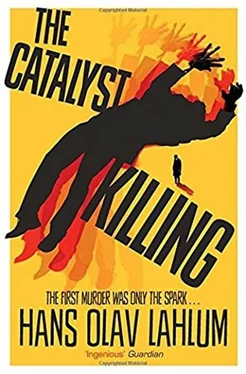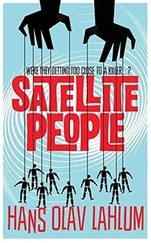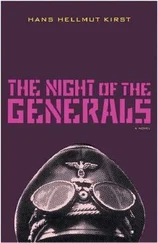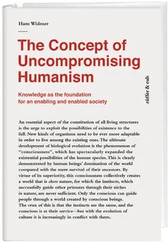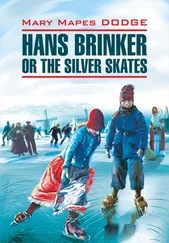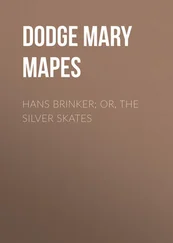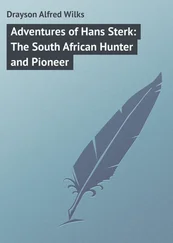Otherwise, they did not have much news to tell. Their son had suddenly turned up at their door without warning the night before, giving them the best shock of their lives. Then he had disappeared out the door with the key to his parents’ blue Peugeot half an hour later. They had asked where he was going to spend the night, but he had replied that it was safest and best for them if they did not know. He had promised to take good care of himself and asked them to be careful about who they let in. They had asked him to contact the police as soon as possible, which he had promised to do. On his way out, he had added that he had something big and important to do for the country, but that everything would be sorted within forty-eight hours.
I asked whether he had had anything more to say about his fiancée’s dramatic death. They both looked down and with something akin to humiliation said that he had not mentioned it, and that they in their confusion had not asked. Their astonishment and joy at seeing their only son again had been so great that they had had no thought for anything else until he had gone. Later, when they talked through the night, they concluded that Marie Morgenstierne’s death was now even more inexplicable than before. They were utterly convinced, though, that Falko had nothing to do with it, and tended to think now that his fiancée must have been murdered for other reasons that had nothing to do with him. Their initial theory that some political enemies were intent on liquidating the whole group had foundered, as Falko himself was alive.
The conversation then dried up, with a few repetitions. I declined the offer of coffee, saying I had a long and busy day ahead. Still in perfect harmony, they nodded together with understanding.
‘Given our story, we hope you understand why we have never trusted the police. For the past couple of decades, the police in Norway, as in so many other countries west of the Iron Curtain, have only been there to repress people like us, and have never been there for us when we needed help. But we do have confidence in you. We trust that you will come back with our son alive and close the case so that any danger that threatens him disappears. Only then can we relax and enjoy life.’
Astrid Reinhardt smiled gently as she said this. Her husband was silent in his consent. It felt like a very personal and significant vote of confidence, but I also felt that the pressure on me was mounting. I rushed out to the car.
I deliberately started my second round of visits to the former Nazis with the architect Frans Heidenberg in Skøyen. I reckoned that there was more chance of getting something out of him than his far more temperamental friend, Christian Magnus Eggen.
The house was just as impressive as it had been the first time, and the lawn was newly cut. Frans Heidenberg opened the door with same friendly smile, then showed me into the same grand living room. But it was never likely to be such a pleasant and relaxed visit as the first time round, and that certainly proved to be the case.
I did not have much time, so I got straight to the point and reminded my host that when I last came to see him he had told me that he had not met the Valdres farmer, Henry Alfred Lien, since the war. He nodded, and then pointed out that that was of course as far as he could remember. He had spoken to so many people at social occasions in the past twenty-five years that it was impossible to remember everyone, given his ageing memory.
I put the photograph that had been left behind by Falko Reinhardt in Room 27 down on the table in front of us. With a slight edge to my voice, I expressed my hope that his memory was at least good enough to be able to confirm whom he had eaten with at a restaurant this summer.
I caught a glimpse of a different and far less friendly Frans Heidenberg as soon as I put down the picture. For a few seconds, his mouth was drawn and his eyes got flinty. But he kept up appearances and controlled his voice extremely well when he spoke after a short pause for thought.
Frans Heidenberg’s explanation of the picture was that he and Christian Magnus Eggen had gone to the Grand Café for a good dinner, and had started chatting to two other gentlemen in the bar who were friendly and made a good impression. So they had chatted for a while, but he had no reason to pay attention to their names and certainly could not remember them now. He ‘remembered vaguely’ that one of them did have a Valdres dialect, and would in no way protest if I said that he was Henry Alfred Lien. But when he had answered the question the last time I was there, he had done so in good faith.
I pretended to believe Frans Heidenberg and asked with forced camaraderie if he knew anything about the fourth person in the picture. He gave me his friendliest smile back and shook his head apologetically. The fourth person at the table had apparently been an older man in a suit, who he thought came from Oslo. It wasn’t easy to guess his age and the man had said very little about himself. And it was difficult for him to give me a more detailed physical description. He talked rather vaguely about a dark-haired man, somewhere between sixty and seventy, but there were so few details that it could hardly be called a description. Unfortunately his eyes were not what they used to be, and he did not like to be impolite and stare too much at people.
We got stuck in this rather stilted, mutually guarded mode of communication. I understood that Frans Heidenberg was either lying outright or, at the very least, failing to divulge some important information. But I also realized that, for the moment, I had no way to prove it. And he knew this, too. So we continued for a few minutes, locked in a war of wills; in the pleasantest of voices, I asked for more details, and he apologized that he could not remember or had not noticed anything else. Sadly, his sight, hearing and memory were no longer what they used to be.
My final question was whether Christian Magnus Eggen appeared to know the other two men from before, and if so, to what extent. Frans Heidenberg again gave an apologetic shrug and said that he had no idea. If it was important, I could of course pay Eggen a visit and ask him myself. I saw the hint of a mocking smile playing both on his lips and in his eyes when he said this, but yet again, it was something that could not be pinned down.
I took Heidenberg at his word and said that I would do just that, and asked him to keep our conversation confidential. The conversation ended fittingly enough with him promising to do this, when we both knew perfectly well that he would break that promise as soon as I left the house.
Frans Heidenberg accompanied me to the door like the perfect host, held out his hand and wished me good luck with the investigation and a good day. After a moment’s hesitation, I took it. Shaking his hand now felt like biting into a sour apple. As I walked down the driveway, I suddenly disliked Frans Heidenberg even more than Christian Magnus Eggen. But this did not mean that I looked forward to meeting the latter.
It was half past ten when I rang Christian Magnus Eggen’s doorbell in Kolsås. I did not have much time left before my appointment at the prime minister’s office. However, I did not anticipate that this would be a long conversation. And in that sense, I was not disappointed.
Christian Magnus Eggen opened the door and leaned on his stick. He made no sign of inviting me in, and I had no desire whatsoever to go in.
He set the tone by asking if I had anything new to tell him about the murder of his old friend, Marius Kofoed, in spring 1945 – in which case, he would be happy to talk to me.
I replied with measured calm that the case was not my responsibility, and furthermore was now time-barred, so he could perhaps, happily or unhappily, talk to me about more recent murder cases. Christian Magnus Eggen rolled his eyes, denied any knowledge of any more recent murder cases and said he was curious to know if I had any proof linking him to such cases.
Читать дальше
